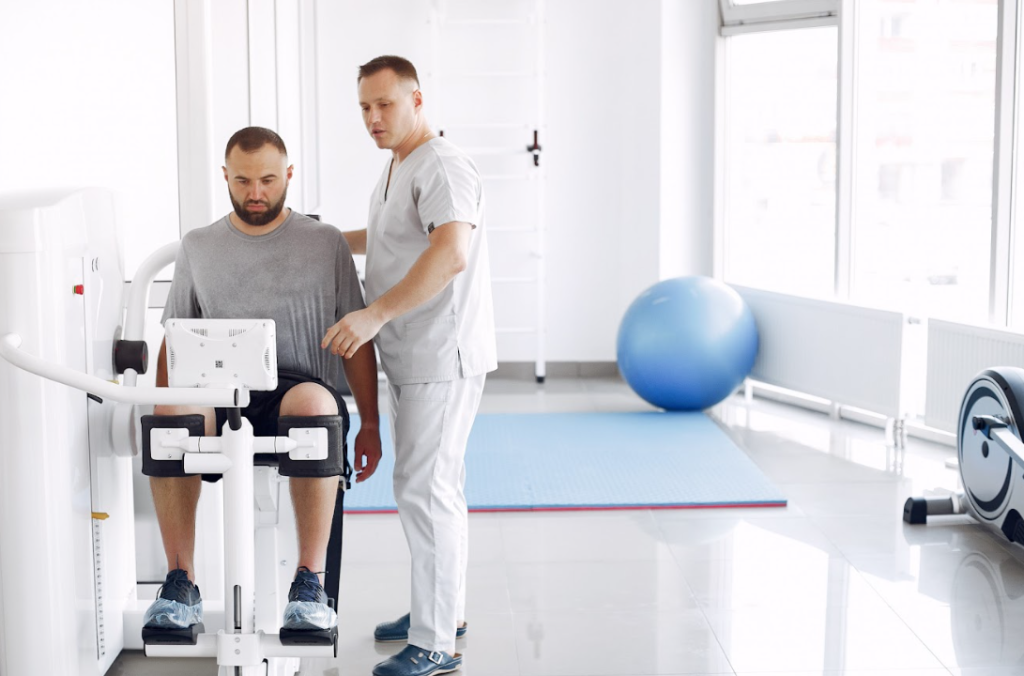Physiotherapy
Home – Hospital Services – Physiotherapy


Physiotherapy services in hospitals are provided to help patients recover from injuries, surgeries, or medical conditions that affect their movement, strength, or function. These services are offered by licensed physiotherapists who assess the patient’s condition and design individualized treatment plans. The primary goals of physiotherapy in a hospital setting are to improve mobility, reduce pain, restore function, and prevent further complications.
Types of physiotherapy services provided in hospitals:
1. Post-surgical Rehabilitation: After surgeries, especially orthopedic,
cardiovascular, or neurological surgeries, physiotherapy helps patients regain strength, flexibility, and range of motion.
2. Neurological Rehabilitation: For patients with neurological conditions like stroke, spinal cord injury, Parkinson’s disease, or multiple sclerosis, physiotherapists help with improving motor function, balance, and coordination.
3. Orthopedic Physiotherapy: For musculoskeletal injuries (fractures, joint replacements, ligament tears), physiotherapists help with healing, strengthening muscles, and preventing future injuries.
4. Cardiopulmonary Physiotherapy: Patients with heart or lung conditions (such as COPD, asthma, or after heart surgery) benefit from exercises designed to improve cardiovascular fitness and lung function.
5. Pain Management: Physiotherapists use various techniques like manual therapy, electrical stimulation, and exercise programs to reduce chronic pain.
6. Pediatric Physiotherapy: For children with developmental or musculoskeletal conditions, physiotherapists assist with improving motor skills, strength, and flexibility.
7. Geriatric Physiotherapy: Physiotherapy helps elderly patients maintain mobility, strength, and balance, preventing falls and improving quality of life.
8. Pelvic Health Physiotherapy: Some hospitals offer specialized physiotherapy for patients dealing with pelvic floor dysfunction, such as urinary incontinence or pelvic pain.
Common physiotherapy techniques used:
- Therapeutic Exercises: Exercises to strengthen muscles, improve flexibility, and restore function.
- Manual Therapy: Hands-on techniques to mobilize joints and soft tissues.
- Electrotherapy: Modalities like TENS (Transcutaneous Electrical Nerve Stimulation) or ultrasound to reduce pain and inflammation.
- Heat and Cold Therapy: To manage pain and swelling.
- Education and Lifestyle Advice: Teaching patients how to move properly, avoid strain, and perform daily activities safely.

